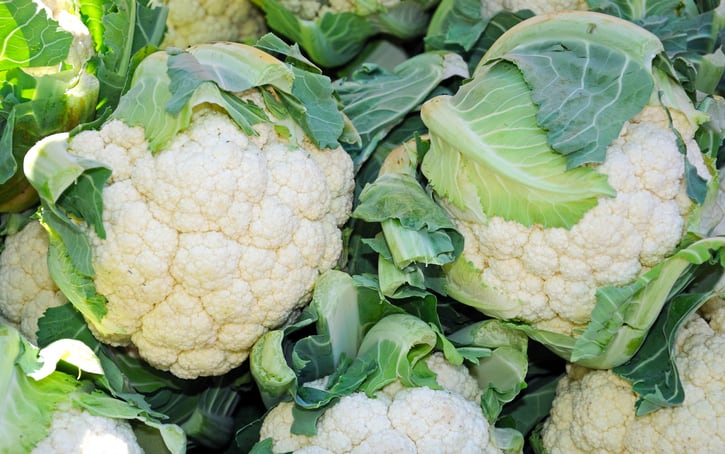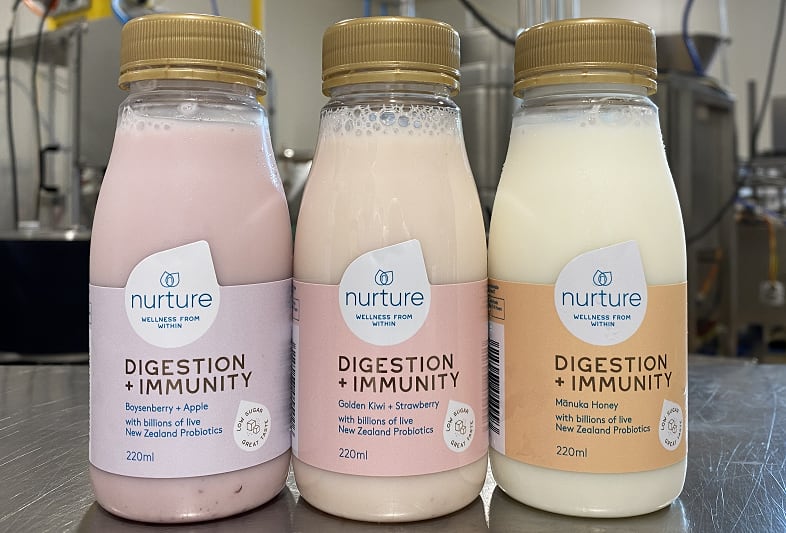The omega-3 used in the study was derived from algal oil and the researchers believe that using cauliflower as an omega-3 encapsulation material could make the omega-3 products suitable for vegans or vegetarians.
In the study, the cauliflower-encapsulated algal oil omega-3 came in the form of powder and was added into snacks and soups for the test subjects to consume.
To prepare the cauliflower-encapsulated algal oil omega-3 powder, the researchers first washed and sanitised cauliflower heads, and then heated them at 100 degrees Celsius for 15 minutes to inactivate spoilage and pathogenic microorganisms and quality-degrading enzymes.
The cauliflower heads were then made into a puree and algal oil was added to the puree at a ratio of one to three. The combination was then emulsified and freeze-dried into powder.
The researchers from Australia’s research agency CSIRO and Singapore’s A*STAR then compared the bioavailability of cauliflower-encapsulated algal oil omega-3, versus omega-3 encapsuled in bovine gelatine.
Study design
The study was a multicentre, randomised, controlled, crossover, and single blind trial.
It involved 27 men, consisting of 12 Australian Europeans and 15 Singaporean Chinese between the age of 21 to 50.
They were randomised to take either a snack or soup, both containing cauliflower-encapsulated algal oil omega-3 powder or gel capsules containing algal oil after an overnight fast.
Participants in both groups consumed 400mg of DHA from either the snack, soup, or gel capsules with a standardised breakfast.
Their blood samples for the analysis of plasma DHA and eicosapentaenoic acid (EPA) were taken pre-meal and 2, 4, 6, 8 and 24 h post meal.
Findings
Two key findings arose from the study.
First, the bioavailability of DHA and EPA did not differ significantly between those who took gel capsules or cauliflower-encapsulated algal oil.
For example, the maximum blood plasma DHA concentration in subjects who took the soup with cauliflower-encapsulated algal oil powder was 52.4 ug/ml, those who took the snack was 51.5 ug/ml, while those who took gel capsules was 55.2 ug/ml.
This was not a statistically significant difference as the p-value was more than 0.05.
When both EPA and DHA was taken into consideration, those who took the soup with cauliflower-encapsulated algal oil powder had a maximum concentration of 70.5 ug/ml, that of those who took the snack was 69.6 ug/ml, and that of those who took gel capsules was 73.5 ug/ml.
Second, the bioavailability also did not differ significantly between Australian Europeans and Singaporean Chinese.
For example, in Australian Europeans and Singaporean Chinese who took gel capsules, their blood plasma DHA concentration peaked at the sixth hour post meal and decreased subsequently.
“The differences at 6 h were a result of a slight delay in increases in plasma DHA concentrations from gel capsules, causing peak concentrations to be reached later (at 6 h) compared to soup and extruded rice snack that started to decrease after 4 h,” the researchers explained.
“In conclusion, the vegetable-based omega-3 long chain polyunsaturated fatty acid (LCPUFA) delivery system did not affect bioavailability of omega-3 LCPUFA in healthy young Australian and Singaporean men as assessed after a single meal over 24 h.
“This novel delivery system may be an effective way to fortify foods/beverages with omega-3 LCPUFA providing consumers with alternative sources to increase their omega-3 LCPUFA intake.
“In addition, if a vegetarian omega-3 LCPUFA oil is used within the delivery system, such as algal oil in the current study, the products will be suitable for vegans and vegetarians, a population particularly at risk of omega-3 LCPUFA deficiency,” the researchers concluded.
Source: European Journal of Nutrition
Bioequivalence of long-chain omega-3 polyunsaturated fatty acids from foods enriched with a novel vegetable-based omega-3 delivery system compared to gel capsules: a randomized controlled cross-over acute trial
doi: 10.1007/s00394-021-02795-7
Authors: Stonehouse et al





